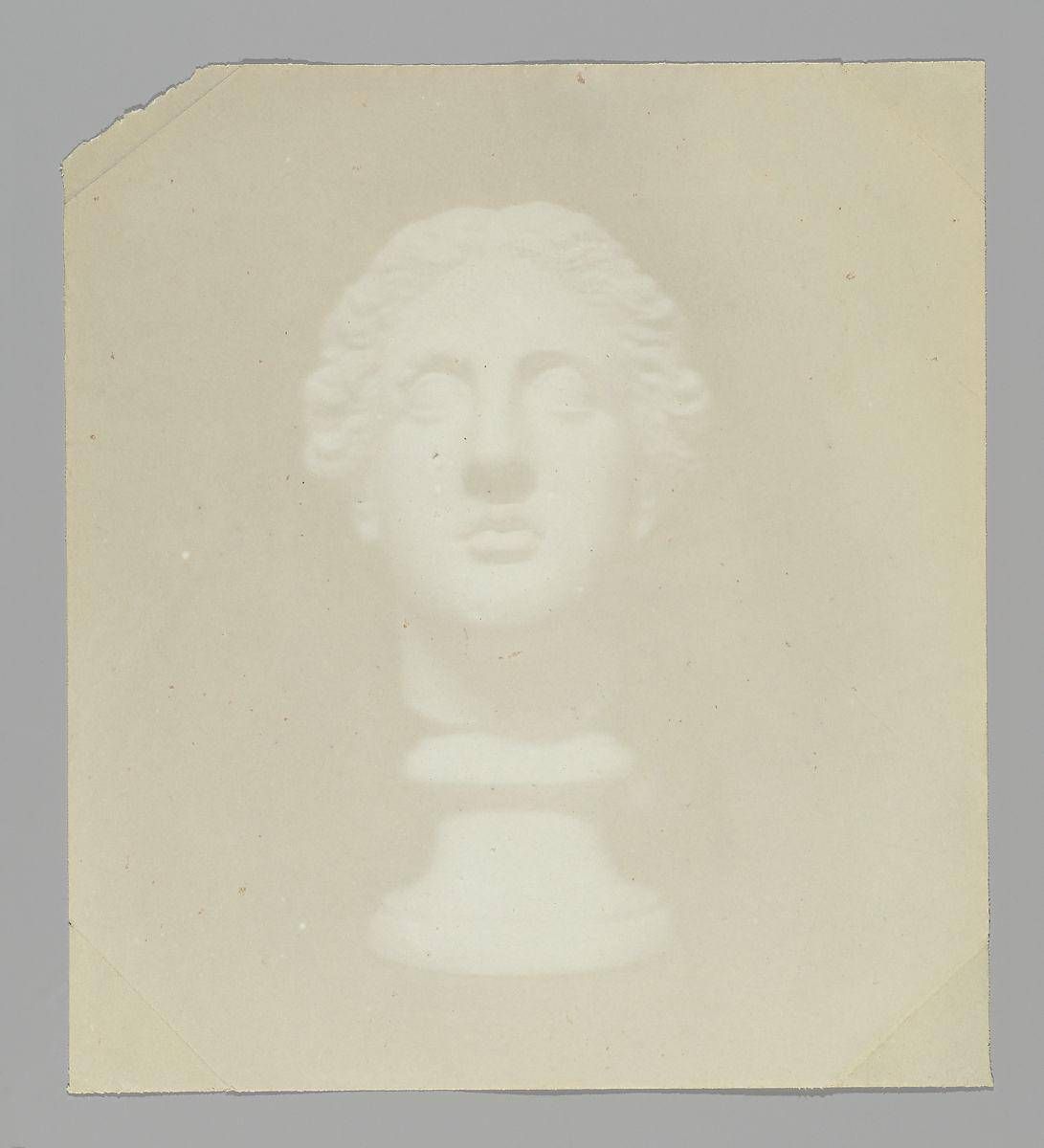
[Classical Head]
This luminous head seems to materialize before our very eyes, as if we are observing the moment in which the latent photographic image becomes visible. Nineteenth-century eyewitnesses to Hippolyte Bayard’s earliest photographs (direct positives on paper) described a similarly enchanting effect, in which hazy outlines coalesced with light and tone to form charmingly faithful, if indistinct, images. These works, which Bayard referred to as essais (tests or trials), often included statues and busts, which he frequently arranged in elaborate tableaux. In this case, he photographed the lone subject (an idealized classical head) from the front and side, as if it were a scientific specimen. The singular object emerges as a relic from photography’s origins and now distant past.
Credit: Purchase, Horace W. Goldsmith Foundation Gift, 2019
Probably 1839
Salted paper print
16.5 x 15.0 cm
2019.309
Image and text © Metropolitan Museum of Art, 2020
Where you'll find this

Permanent collection

![[Corner of an Empty Lot]](https://img.smartify.org/KstJwRDwBv51Ii42CzF-vzZbm8JRfgJUoy8QKP00dVc/resize:fill-down:535:535:0:0/gravity:fp:0.5:0.5/format:jpg/czM6Ly9zbWFydGlmeS1tZWRpYS9ha19vaHlzOGFCdVExc24ycXVzdlozYS9zbUJTelVhNERUdEcwS0JuV2lERi5qcGc.jpg?Policy=eyJTdGF0ZW1lbnQiOiBbeyJSZXNvdXJjZSI6Imh0dHBzOi8vaW1nLnNtYXJ0aWZ5Lm9yZy9Lc3RKd1JEd0J2NTFJaTQyQ3pGLXZ6WmJtOEpSZmdKVW95OFFLUDAwZFZjL3Jlc2l6ZTpmaWxsLWRvd246NTM1OjUzNTowOjAvZ3Jhdml0eTpmcDowLjU6MC41L2Zvcm1hdDpqcGcvY3pNNkx5OXpiV0Z5ZEdsbWVTMXRaV1JwWVM5aGExOXZhSGx6T0dGQ2RWRXhjMjR5Y1hWemRsb3pZUzl6YlVKVGVsVmhORVJVZEVjd1MwSnVWMmxFUmk1cWNHYy5qcGciLCJDb25kaXRpb24iOnsiRGF0ZUxlc3NUaGFuIjp7IkFXUzpFcG9jaFRpbWUiOjE3NTM0MDE2MDB9LCJEYXRlR3JlYXRlclRoYW4iOnsiQVdTOkVwb2NoVGltZSI6MTc1MjEwNTYwMH19fV19&Signature=EXZHRiA~tjlPRFHU1inUUANK7cvjfajUqBqZmSIYcaivN6rCkacKNtzOaXtH3yDDXnDmR49Lf6AaAODhJvVN4~qjWLQQB0GxPUFVnE~yvSlvZM4nKvQbOIUobJYMjAYXsIAlaAx0rycXH9vv0RyjIPTXAOicJlGGCZguo1QnXP08IxBiUjVI6qvndjjUcEMvZejVCd-BcoXDaHsKN3mo125GLuBISS3kAs~k7hWoV5D9wd2z9RHxUlv2Q~jDagW-G2Mh8~NoiQCmnDTGMns4o0GfSsjmRVs9-X1uHEQjkti-ijg6eckil88CQF6eKtSBUqDgGxXBYJtwTbBHFtjs4A__&Key-Pair-Id=K2TK72C9H46KK2)



